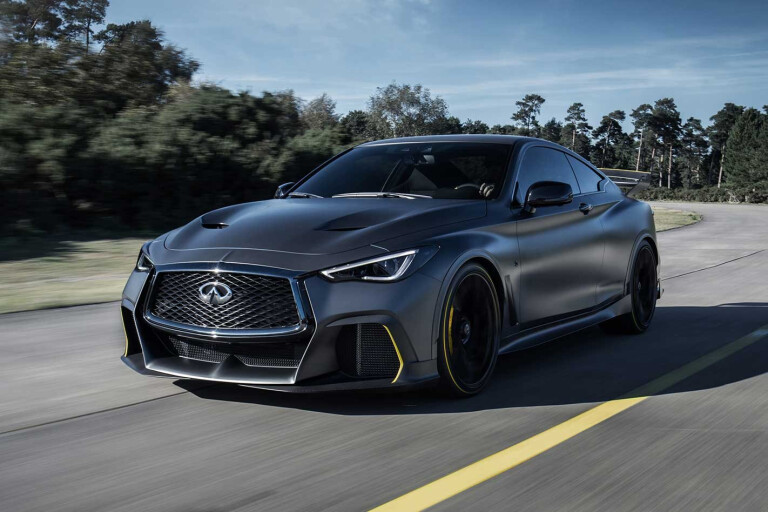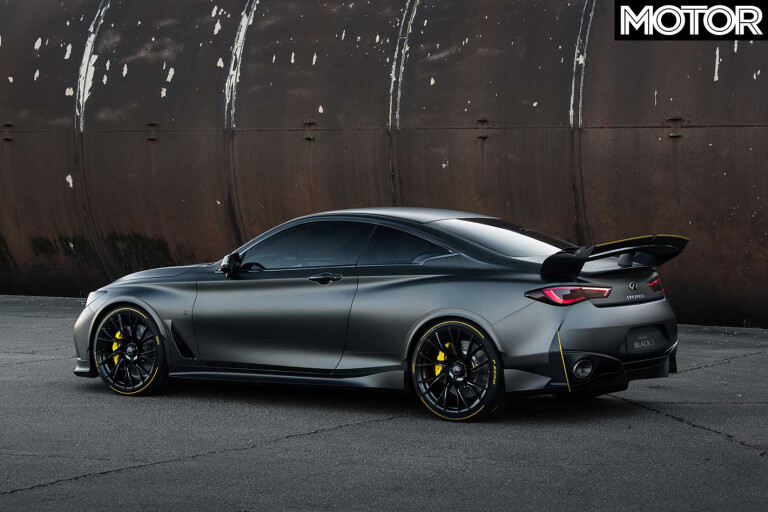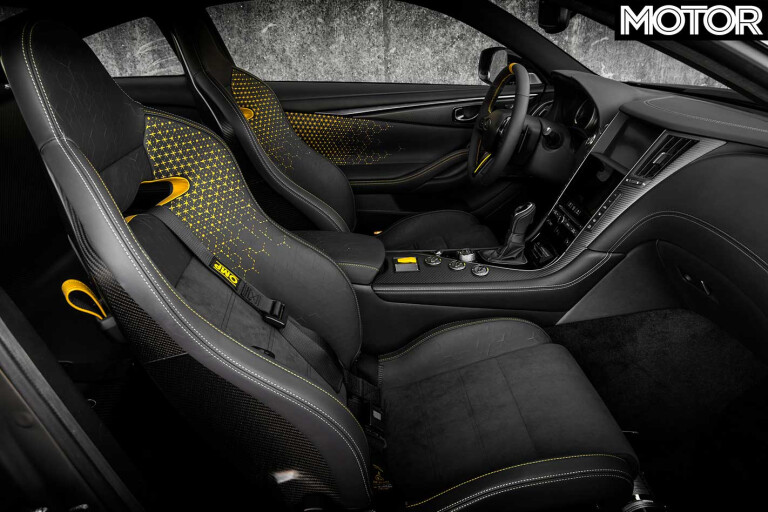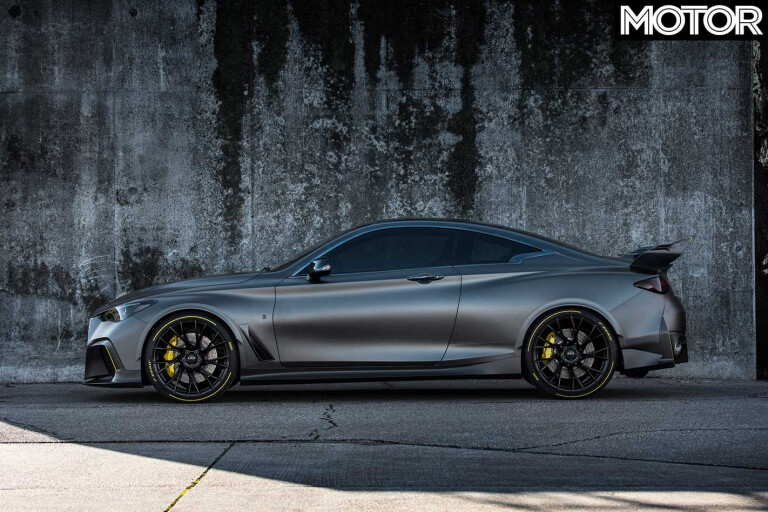
The Infiniti Q60 Project Black S has been reborn for the 2018 Paris Motor Show in the form of a 420kW hybrid beast.
The Project Black concept car, which was initially revealed in an earlier iteration last year, is powered by a 298kW twin-turbo 3.0-litre V6 like the production Q60S Red Sport, though Project Black also has approximately 120kW of hybrid power at its disposal for a claimed 420kW total output headed only towards the rear wheels.

Infiniti claims a power-to-weight of 236kW per tonne, with a 0-100km/h sprint achieved in less than 4 seconds.
Additionally, the F1-derived KERS system seen in Project Black is able to recover energy under braking and acceleration.
The car does, however, still use Infiniti’s steer-by-wire system which MOTOR was somewhat critical of during our time with a Q50 Red Sport long term test car.

Infiniti worked closely with Renault Sport Formula One Team for the development of Project Black, with a claim as the first to develop F1-style dual-hybrid technology specifically for the road.
This is where the technology for the hybrid system in the concept car was born, says Renault Sport Formula One Team managing director Cyril Abiteboul.

“A technical partner to the Renault Sport Formula One Team, Infiniti's experience of working with homologated hybrid powertrain technology was instrumental in the co-development of our dual-hybrid system. Making the leap from circuit to road is something we are incredibly excited to be involved in.”
Aside from the extra power and altered styling from the previous version of Project Black, this iteration is also lighter, with 1775kg now being the magic number.

Infiniti says the specific donor car used weighed 1752kg, and the Project Black powertrain originally added about 200kg. Intense weight reduction means that weight is now only 24kg heavier than it originally was.
We won’t see this particular car hit the streets, but a road car based on it may make production. Infiniti is keen to use tech like this for its future lineup which it wants to make entirely electrified by 2021.

COMMENTS